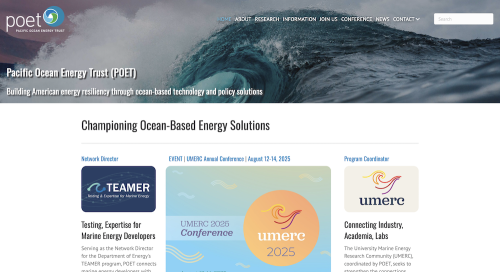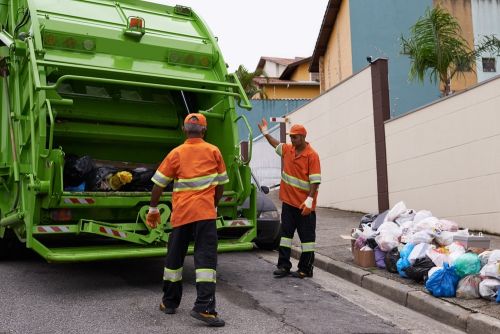Interview with Hamed Hamedian, Co-Founder of Cropinno: Leveraging Satellite Technology for Smarter Farming


Cut through the green tape
We don't push agendas. At Net Zero Compare, we cut through the hype and fear to deliver the straightforward facts you need for making informed decisions on green products and services. Whether motivated by compliance, customer demands, or a real passion for the environment, you’re welcome here. We provide reliable information—why you seek it is not our concern.
Date: November 13, 2024
Interviewer: Karol Kaczmarek
Interviewee: Hamed Hamedian, Co-Founder and Business Development Manager, Cropinno

Karol Kaczmarek: Thank you for joining us today, Hamed. To start, could you briefly describe your role at Cropinno and how the company began?
Hamed Hamedian: Certainly, Karol, and thank you for having me. I’m the co-founder and business development manager of Cropinno. We started this company in Toronto, Canada, back in 2021. Cropinno operates in the agriculture technology sector, providing consulting services for farmers and agribusinesses.
Karol Kaczmarek: What are the main products and services you offer?
Hamed Hamedian: Our flagship product is a cloud-based application accessible via laptops, mobile phones, or any smart device. It utilizes satellite imagery and AI to help farmers monitor their fields and identify potential issues early on, such as crop damage, anomalies in growth, or soil inefficiencies. These insights enable farmers to address problems like health stress and optimize fertilizer use.
We primarily cater to medium- and large-scale farms, though our technology can also serve smaller farms, especially those over 100 acres. Beyond individual farmers, we provide enterprise services tailored for farm valuation companies, like appraisers, and farm insurance companies, particularly for claim adjusters. These enterprise services are report-based rather than application-based.
Karol Kaczmarek: You mentioned focusing on medium and large farms. Why is that?
Hamed Hamedian: In Canada, the average size of crop farms is around 400 acres. Our technology is more effective for farms over 100 acres due to the resolution of satellite imagery and the scalability of our solutions. However, we don't exclude smaller farms; we’re just optimized for larger operations.
Karol Kaczmarek: Besides farmers, valuation, and insurance companies, do you serve any other sectors?
Hamed Hamedian: Yes, we also collaborate with government and environmental organizations. For instance, they might request custom solutions for monitoring deforestation or tracking changes in natural resources. While agriculture remains our core focus, we’re open to supporting broader environmental monitoring efforts.
Karol Kaczmarek: Can your technology assess soil quality or detect overuse of fertilizers?
Hamed Hamedian: Direct soil assessment isn’t possible via satellite, but we can infer soil health through crop analysis. By examining historical satellite data—up to 10 years—we can compare current crop conditions with past seasons. This helps determine whether soil quality is declining or if fertilizers are being used efficiently.
Karol Kaczmarek: How often do you get updated satellite images?
Hamed Hamedian: Under good weather conditions, we receive new satellite images every two to three days, giving us over 100 images per year. However, cloud cover can occasionally limit visibility. Even then, updates occur frequently enough to ensure continuous monitoring without significant gaps.
Karol Kaczmarek: What are Cropinno’s future plans?
Hamed Hamedian: We’re focused on refining our AI algorithms to enhance the accuracy of stress detection in crops. Additionally, we plan to expand our services to include more crop types beyond our current focus on grains and oilseeds like wheat, corn, and soybeans. We’re also exploring applications for tree crops and other industries, aiming to scale our operations globally.
Karol Kaczmarek: Speaking of scaling, are you currently serving only Canadian clients?
Hamed Hamedian: While our initial focus is on Canadian farms, we’re open to working with clients worldwide. We can customize our technology for different crops and regions, allowing farmers in Europe, Africa, or elsewhere to benefit from our solutions.
Karol Kaczmarek: How does your pricing structure work?
Hamed Hamedian: For Canadian farms, we charge between 19 to 49 cents per acre per month, depending on the farm size and subscription duration. For enterprise clients like insurance and valuation companies, we provide detailed reports, typically priced at $99 per report.
Karol Kaczmarek: Lastly, can you share a success story?
Hamed Hamedian: Certainly. We’ve supported over 3,000 users globally, achieving average productivity gains of 10-15%. This translates to either increased profits or reduced input costs through more efficient resource use. In some cases, we’ve helped prevent crop losses by identifying issues early, directly improving yield and profitability.
Karol Kaczmarek: That’s impressive. Is there anything else you’d like to add?
Hamed Hamedian: Just that our mission extends beyond profitability. By reducing the use of fertilizers and chemicals, we’re helping farmers become more sustainable, contributing to a greener planet.
Karol Kaczmarek: Thank you, Hamed, for sharing your insights. Best of luck with Cropinno’s growth.
Hamed Hamedian: Thank you, Karol. I look forward to future collaborations.

More related content

What is Holding Back the Grid? Key Takeaways from a Conversation wi...

Bridging Innovation and Policy in Marine Energy: An Interview with ...

Supporting Small Businesses on the Path to Net Zero: A Conversation...
